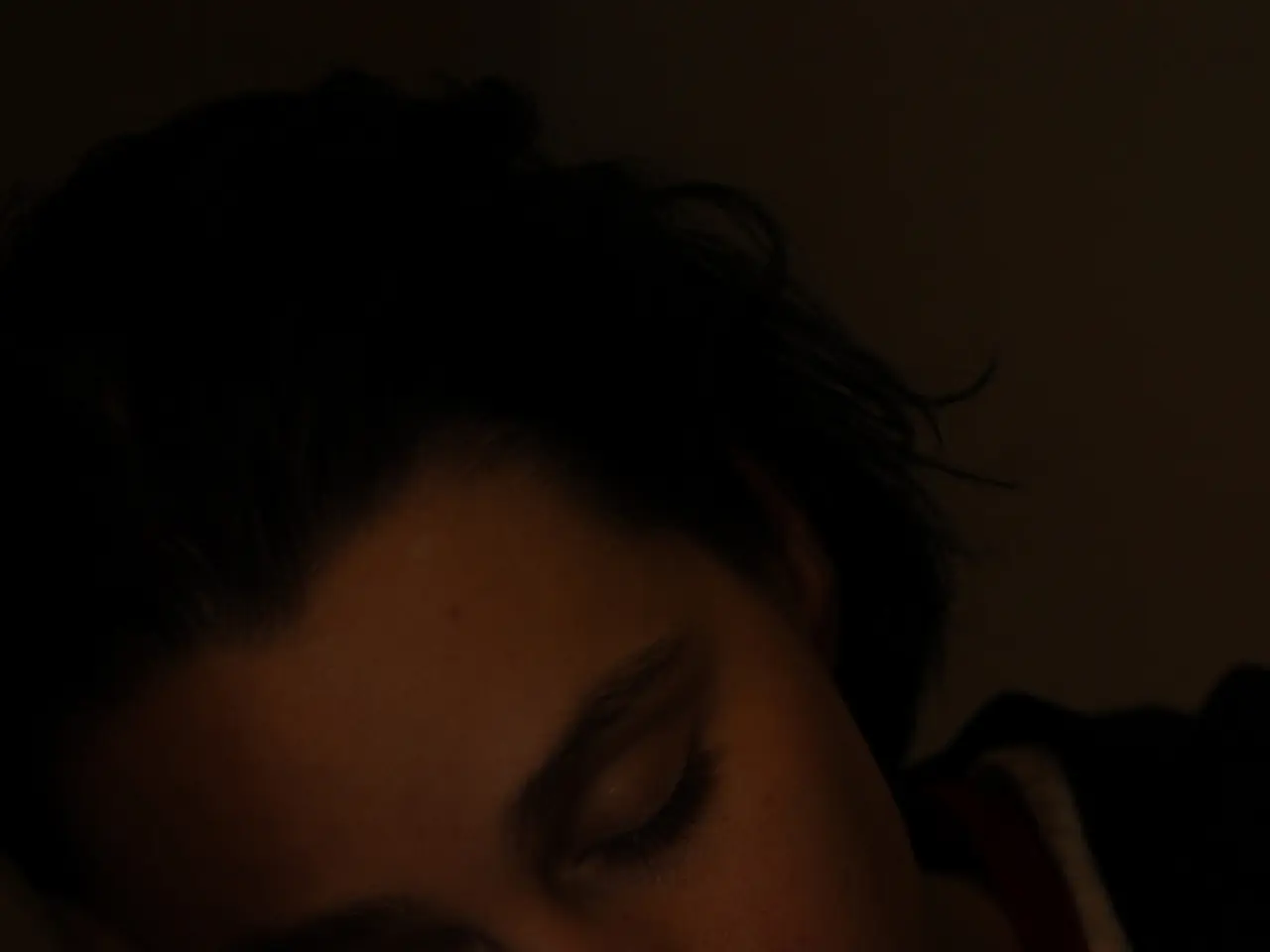Connection between Hypothyroidism and Sleep Disorders: Uncovering the Relationship
In a recent examination of the relationship between hypothyroidism and insomnia, a series of studies have provided some insights.
Those suffering from subclinical hypothyroidism, an early and mild form of the condition, are often found to be female, younger, or of a lower body weight. Subclinical hypothyroidism has been associated with shorter sleep duration, longer sleep latency, and lower satisfaction with sleep quality. However, current research does not establish a consistent direct link between hypothyroidism and insomnia.
Insomnia, primarily, is driven by physiological hyperarousal involving neurotransmitter imbalances and hormonal factors such as elevated cortisol at night, which disrupt sleep initiation and maintenance. Hypothyroidism, on the other hand, generally slows metabolic processes and may cause fatigue and excessive sleepiness rather than difficulty sleeping.
Sleep studies reviewed in the recent literature have focused more on sleep duration and disorders related to metabolic syndrome, hypertension, obesity, and depression rather than a direct association with hypothyroidism. Sleep disturbances in hypothyroid patients are more often linked to secondary factors such as mood disorders (e.g., depression) or obesity-related sleep apnea rather than a primary insomnia caused by thyroid hormone deficiency.
Hypothyroidism can indirectly affect sleep through physical discomfort, medication side effects, and other health conditions such as obstructive sleep apnea and restless legs syndrome. A study found no association between thyroid hormone levels and low-quality sleep due to limitations in the study's sample size and diversity.
Treatment for insomnia in those with hypothyroidism may include beginning thyroxine treatment, lowering the dose of thyroxine, and testing for other conditions that may be causing insomnia. Interestingly, a study found that melatonin supplements, when taken by females with hypothyroidism, showed significantly higher levels of thyroid hormones compared to a placebo group after 3-6 months.
For individuals with autoimmune hypothyroidism, an anti-inflammatory diet, rich in fruits, vegetables, whole grains, fiber, omega-3 fatty acids, and healthy fats, may provide benefits. However, it's important to note that people with autoimmune thyroid disease may find that iodine in food or supplements worsens their condition.
Lastly, a regular physical exercise program can improve thyroid function in individuals with hypothyroidism. For those concerned about their iodine intake, it can be increased through foods like seaweed or supplements, but those with autoimmune thyroid disease should exercise caution.
In conclusion, while hypothyroidism may indirectly affect sleep, the direct link between the two remains unclear. It's essential to address any underlying factors contributing to sleep disturbances, such as mood disorders, obesity-related sleep apnea, and stress, to improve sleep quality. Consulting a healthcare professional is always advisable for personalised advice and treatment.
- Certain medical conditions, such as depression, can contribute to sleep disturbances in individuals with hypothyroidism.
- Sleep studies have shown that hypothyroidism is more associated with sleep duration and disorders linked to metabolic syndrome, hypertension, and obesity rather than a direct connection with insomnia.
- Rheumatoid arthritis, a chronic disease, can cause physical discomfort that may affect sleep, but it is not necessarily a direct cause of insomnia.
- Mood disorders like depression can lead to insomnia in people with hypothyroidism, making it challenging to predict sleep patterns based solely on thyroid hormone levels.
- Studies have indicated that melatonin supplements might help boost thyroid hormone levels in women suffering from hypothyroidism, potentially improving their sleep quality.
- Autoimmune hypothyroidism might be affected by dietary choices, with some research suggesting that an anti-inflammatory diet can provide benefits.
- Exercise can improve thyroid function in individuals with hypothyroidism, aiding in better sleep and overall health-and-wellness.
- Iodine consumption, either through food or supplements, can have varying effects on people with autoimmune thyroid disease, with some finding it beneficial while others might experience worsened conditions.
- For those experiencing sleep disturbances related to hypothyroidism, consulting with a medical professional is crucial to identify and address any underlying factors contributing to their sleep problems and form a suitable treatment plan for their health and mental health.




